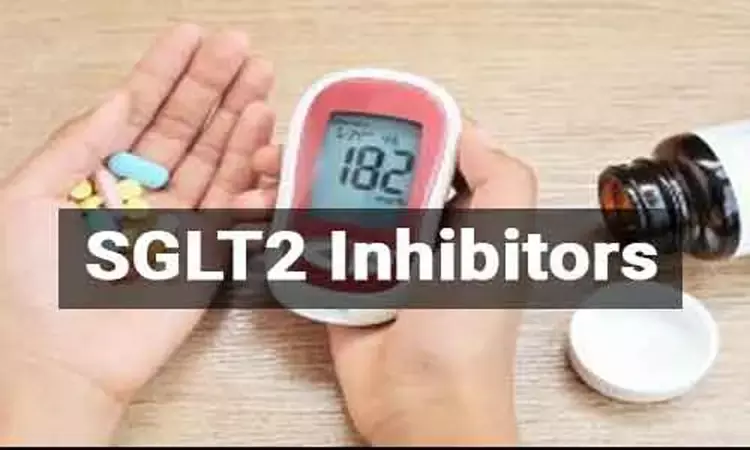- Home
- Medical news & Guidelines
- Anesthesiology
- Cardiology and CTVS
- Critical Care
- Dentistry
- Dermatology
- Diabetes and Endocrinology
- ENT
- Gastroenterology
- Medicine
- Nephrology
- Neurology
- Obstretics-Gynaecology
- Oncology
- Ophthalmology
- Orthopaedics
- Pediatrics-Neonatology
- Psychiatry
- Pulmonology
- Radiology
- Surgery
- Urology
- Laboratory Medicine
- Diet
- Nursing
- Paramedical
- Physiotherapy
- Health news
- Fact Check
- Bone Health Fact Check
- Brain Health Fact Check
- Cancer Related Fact Check
- Child Care Fact Check
- Dental and oral health fact check
- Diabetes and metabolic health fact check
- Diet and Nutrition Fact Check
- Eye and ENT Care Fact Check
- Fitness fact check
- Gut health fact check
- Heart health fact check
- Kidney health fact check
- Medical education fact check
- Men's health fact check
- Respiratory fact check
- Skin and hair care fact check
- Vaccine and Immunization fact check
- Women's health fact check
- AYUSH
- State News
- Andaman and Nicobar Islands
- Andhra Pradesh
- Arunachal Pradesh
- Assam
- Bihar
- Chandigarh
- Chattisgarh
- Dadra and Nagar Haveli
- Daman and Diu
- Delhi
- Goa
- Gujarat
- Haryana
- Himachal Pradesh
- Jammu & Kashmir
- Jharkhand
- Karnataka
- Kerala
- Ladakh
- Lakshadweep
- Madhya Pradesh
- Maharashtra
- Manipur
- Meghalaya
- Mizoram
- Nagaland
- Odisha
- Puducherry
- Punjab
- Rajasthan
- Sikkim
- Tamil Nadu
- Telangana
- Tripura
- Uttar Pradesh
- Uttrakhand
- West Bengal
- Medical Education
- Industry
SGLT2 inhibitors improve survival over DPP4i in patients with cirrhosis and diabetes: Study

Patients with cirrhosis needing additional pharmacotherapy for diabetes beyond metformin experience increased survival with SGLT2i in relation to DPP4i.
USA: SGLT2 inhibitors versus DPP4 inhibitors may improve survival in cirrhosis patients who require additional pharmacotherapy for diabetes beyond metformin, reveal results from a recent study in the journal Diabetes, Obesity and Metabolism.
Sodium-glucose cotransporter 2 inhibitors may have favorable metabolic and neurohumoral effects in chronic liver disease patients. However, studies examining SGLT2 inhibitors in this population are limited only to patients with non-alcoholic fatty liver disease (NAFLD) and have focused on surrogate biomarkers. Considering this, Saad Saffo, Yale School of Medicine, New Haven, Connecticut, and colleagues aimed to evaluate if SGLT2i can reduce the risk of death and ascites over a period of 36 months in patients with diabetes and cirrhosis.
For this purpose, the researchers used electronic health data from Veterans Affairs hospitals in the United States. Following this, they conducted a propensity-score matched intention-to-treat analysis among veterans on metformin who subsequently received either SGLT2i or dipeptidyl peptidase-4 inhibitors (DPP4i).
Upon analysis, they found that among 423 matched pairs (846 total patients), there was no significant difference in the risk for ascites (HR 0.68 for SGLT2i) but SGLT2i users had a reduced risk for death (aHR 0.33).
The findings showed that in comparison to DPP4i, SGLT2i may improve survival for patients with cirrhosis who require additional pharmacotherapy for DM beyond metformin, however, there is a need for confirmatory studies, concluded the authors.
Reference:
The study titled, "Impact of SGLT2 inhibitors in comparison to DPP4 inhibitors on ascites and death in veterans with cirrhosis on metformin," is published in the journal Diabetes, Obesity and Metabolism.
DOI: https://dom-pubs.onlinelibrary.wiley.com/doi/pdf/10.1111/dom.14488
Dr Kamal Kant Kohli-MBBS, DTCD- a chest specialist with more than 30 years of practice and a flair for writing clinical articles, Dr Kamal Kant Kohli joined Medical Dialogues as a Chief Editor of Medical News. Besides writing articles, as an editor, he proofreads and verifies all the medical content published on Medical Dialogues including those coming from journals, studies,medical conferences,guidelines etc. Email: drkohli@medicaldialogues.in. Contact no. 011-43720751




